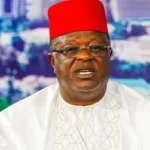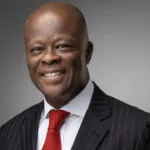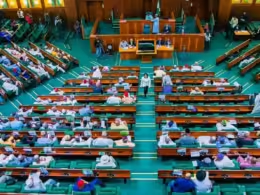Minister of Communications, Innovation, and Digital Economy, Bosun Tijani, has unveiled ambitious Fiber Optic plan to bolster Nigeria’s connectivity infrastructure, aiming to achieve nationwide interconnectivity through a robust fiber optic network.
In a statement to State House correspondents following the federal executive council meeting chaired by President Bola Tinubu at the Presidential Villa, Tijani disclosed that his ministry is spearheading efforts to raise a staggering $2 billion fund to realize this transformative project.
The initiative, set to revolutionize communication and digital access across the country, entails covering an expansive stretch of 120,000 kilometers with fiber optic cables. At the pilot stage, several states are slated to participate, with the ultimate objective of enveloping the entire nation within its network.
Tijani emphasized leveraging existing telecommunications infrastructure to address multifaceted challenges confronting Nigeria, including security concerns. “We’re capitalizing on the resources within NIGCOMSAT, Nigeria’s satellite company, and tapping into the fiber network of Galaxy Backbone to extend connectivity to all 774 local government secretariats,” he stated. Notably, Nigeria stands as the sole West African nation equipped with its satellite, underscoring its potential for technological advancement.
Highlighting the ongoing progress, Tijani revealed that local government secretariats in Kogi, Zamfara, and Imo States are already experiencing connectivity enhancements. “Within the next six months, we aim to extend this pilot initiative to encompass at least eight states, showcasing the tangible benefits of technology-driven governance,” he added.
The minister underscored the pivotal role of connectivity in fostering socioeconomic development, asserting, “By linking local government secretariats, we empower them to leverage technology for enhanced service delivery, while concurrently bolstering security measures.” Moreover, the initiative aligns with President Tinubu’s vision of leveraging technology to propel Nigeria’s growth trajectory.
In tandem with the satellite and fiber optic network expansion, the government is embarking on a significant investment endeavor to augment the country’s connectivity backbone. With an estimated requirement of 120,000 kilometers of fiber optic cable, Nigeria aims to consolidate its position as a digital frontrunner on the African continent. Currently, the existing infrastructure encompasses approximately 35,000 kilometers, with plans to expand by an additional 5,000 kilometers.
“We’ve conducted comprehensive assessments in collaboration with leading industry experts, estimating the total deployment cost to be less than a billion dollars,” Tijani remarked. Encouraged by President Tinubu’s endorsement, the ministry is actively pursuing funding avenues, with plans to establish a $2 billion fund. This initiative aims not only to cover deployment costs but also to drive down connectivity expenses nationwide.
Efforts to secure funding have garnered significant interest from international financial institutions, with the African Development Bank expressing willingness to contribute around $200 million. Additionally, extensive discussions have taken place with the World Bank, indicating a concerted global effort to support Nigeria’s digital infrastructure ambitions.
In pursuit of a sustainable funding model, the ministry is exploring collaboration with the private sector, intending to establish a special purpose vehicle to attract additional investment. “Our goal is to ensure universal connectivity, encompassing schools, hospitals, and government facilities nationwide,” Tijani affirmed, underlining the transformative potential of ubiquitous digital access.
Furthermore, the ministry is actively engaging with the Ministry of Defense to harness advanced satellite capabilities in bolstering national security efforts. While details remain confidential pending further developments, Tijani emphasized the government’s commitment to enhancing security through technological innovation.
The comprehensive strategy outlined by Minister Tijani underscores Nigeria’s unwavering commitment to leveraging technology as a catalyst for progress. With ambitious plans to expand connectivity infrastructure and forge strategic partnerships, the nation is poised to chart a course towards digital inclusivity and economic prosperity. As the transformative initiatives unfold, Nigeria stands poised to emerge as a beacon of technological advancement on the African continent, driving sustainable development and fostering a brighter future for its citizens.














![Breaking: Rivers Youths Shut Down Council Secretariats As Tenure Of Office Ends For Administrators At least 40 dead in Moscow concert hall attack, Ukraine Denies Involvement Rivers Assembly Overrides Fubara, Enacts New Law Breaking: Former Community Youth Leader, Four Others Shut Dead in Egbema, Imo State [VIDEO] Tragic Incident in Enugu: Mother of Three Commits Suicide After Abandoning Children at Police Station BREAKING: Three-storey building collapses as Ebute Metta, Lagos Akwa Ibom pastor Solid Rock Church, Apostle John Okoriko abia uturu student gunmen Asuu suspends strike bonny lga chairman Hon. David Rogers Irimagha Another Kidnapped Victim, Suleiman Sabo rescued by Police In Abuja](https://reportafrique.com/wp-content/uploads/2020/12/report-afrique-breaking-news-260x195.jpg)

